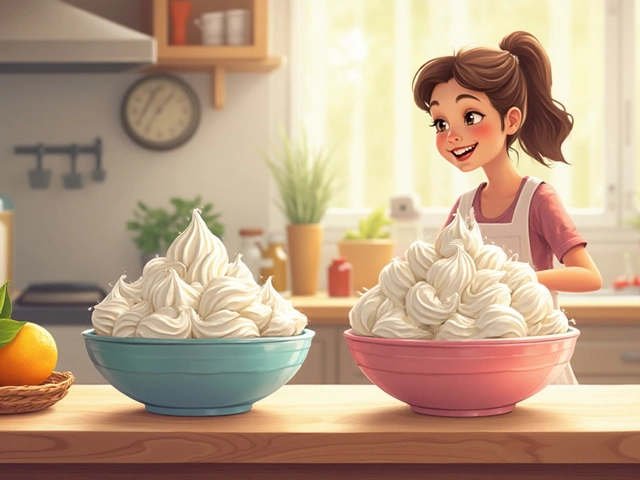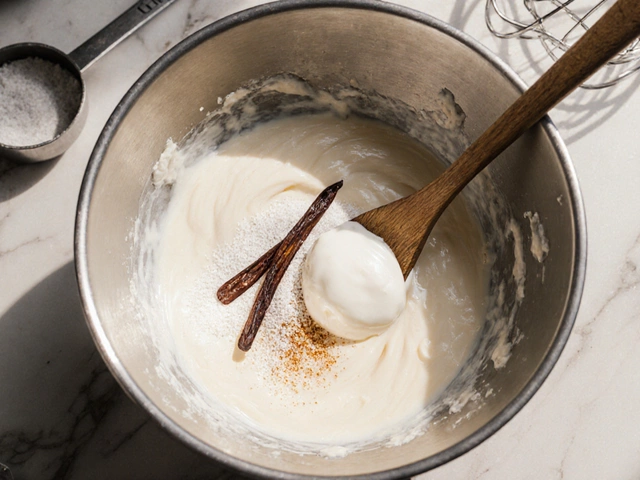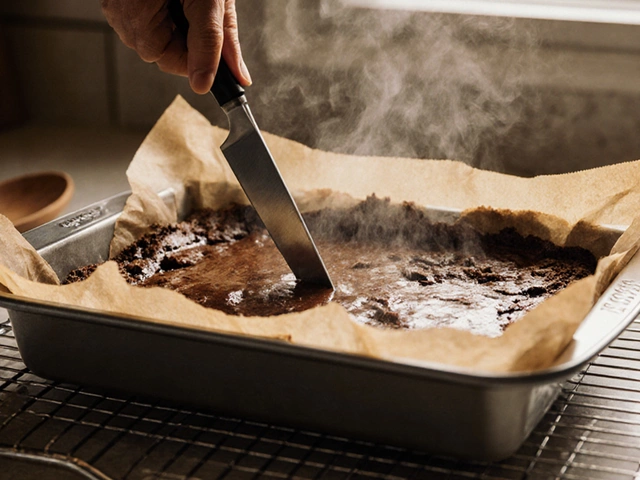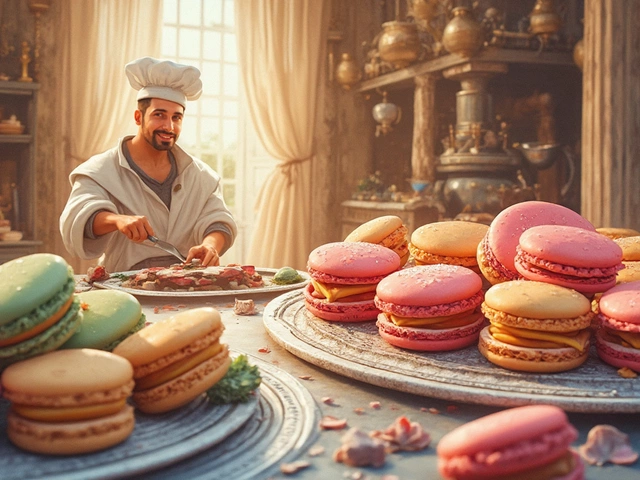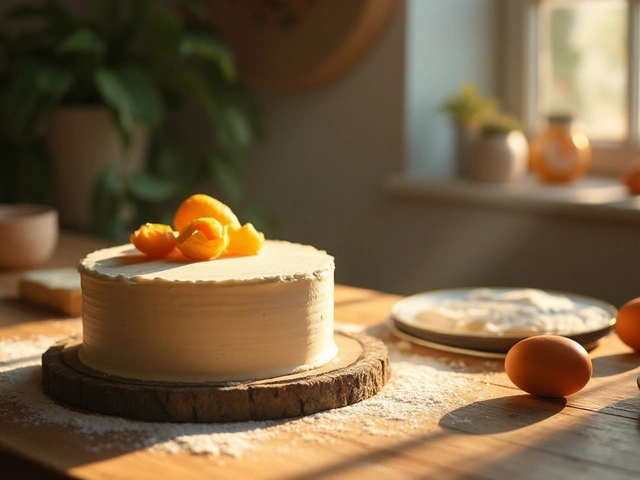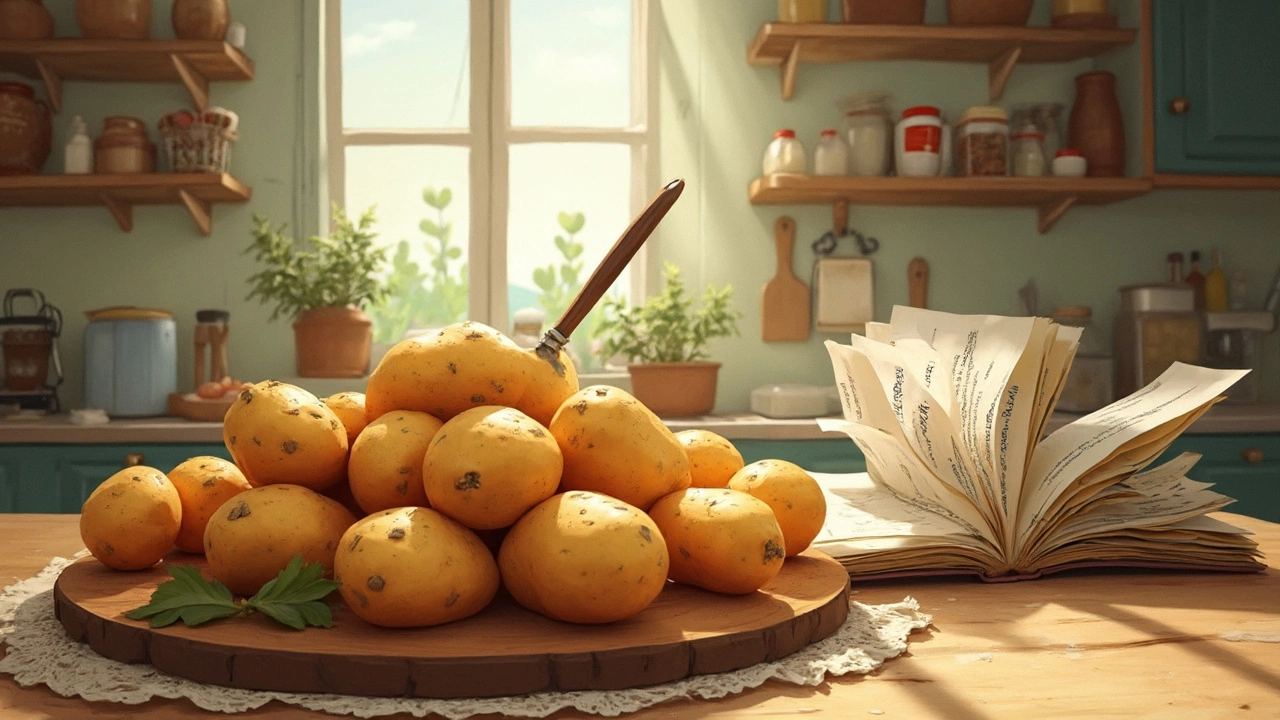
Alright, let's clear the air: potatoes do not contain gluten. Yep, you heard it right! If you're jumping into the world of gluten-free baking, this root vegetable is your buddy. Potatoes are naturally gluten-free, which is a game-changer for those who have to avoid gluten but still want to indulge in delicious baked treats.
Why does this matter so much? Well, gluten is a protein found in wheat, barley, and rye, and it can cause all sorts of trouble for people with celiac disease or gluten sensitivity. So, knowing what’s safe to eat is crucial. Potatoes, being gluten-free, open up a lot of culinary possibilities.
When you're thinking about gluten-free cakes, incorporating potatoes might sound odd at first. But potatoes can actually add moisture and a beautiful texture to your bakes. It’s a bit like giving your cake a secret weapon. Wanna know more? Let’s get creative with some fantastic ways to use potatoes in your baking!
- Understanding Gluten: What Is It?
- Potatoes: Gluten-Free by Nature
- Gluten-Free Baking Tips with Potatoes
- Creative Ways to Use Potatoes in Cakes
- Common Mistakes to Avoid
Understanding Gluten: What Is It?
Gluten is a type of protein found primarily in wheat, but you'll also see it popping up in barley and rye. It’s the stuff that gives bread its chewy texture and helps dough rise and keep its shape. So, in the world of baking, gluten plays a pretty crucial role.
Now, here's the kicker: not everyone can tolerate gluten. For folks with celiac disease, consuming gluten triggers an immune response that can damage the lining of the small intestine. This sounds scary, right? It can lead to nutritional deficiencies, fatigue, and other health issues. Then there are those with gluten sensitivity or intolerance, who might not have celiac disease but still get bloated or uncomfortable after eating gluten.
Gluten-free is more than just a fad or trendy term. It's essential for those with gluten-related disorders. That said, figuring out what contains gluten and what doesn't can be a bit of a puzzle. Particularly because gluten is sneaky and can appear in unexpected places, like sauces and dressings. But the good news? Potatoes don’t contain gluten, which is a relief for anyone partial to this versatile tuber.
Grains to Watch
- Wheat: Think about breads, pastas, and cereals.
- Barley: Often found in malted products, soups, and beer.
- Rye: Common in crackers, bread, and some whiskey.
So, why do we care? Well, for those venturing into gluten-free realms, it’s about knowing what you can safely eat. And with the rise in gluten-free products and flour alternatives, enjoying your favorite bakes doesn’t have to be just a dream.
Potatoes: Gluten-Free by Nature
Here's the lowdown: potatoes are naturally gluten-free. This is huge for anyone needing to dodge gluten yet still wanting to enjoy hearty, filling dishes that taste great. Potatoes fit snugly into a gluten-free lifestyle without causing potential gluten-related grief.
Gluten, just to be clear, is the protein that lives in wheat, barley, and rye, often lurking in processed foods. Potatoes, being pure tubers, have zero traces of this protein. So, they're safe for folks with celiac disease or even those just looking to cut gluten out of their diet for other health reasons.
"Potatoes are an excellent gluten-free staple, providing essential carbohydrates without the worry of gluten contamination," says Jane Johnson, a leading nutritionist from the Gluten-Free Society.
One of the best things about potatoes is their versatility. You can mash them, roast them, or even use them cleverly in baking. In fact, they make for a fantastic ingredient in gluten-free cakes, providing moisture and structure that’s often missing when you take gluten out of the equation.
Health Benefits of Potatoes
Aside from being gluten-free, potatoes pack a punch in the nutrition department. They are full of vitamins like B6 and C, and minerals such as potassium and magnesium. These nutrients are crucial for keeping your body running smoothly.
What's more, potatoes are naturally low in fat and calories, which can be a bonus if you’re watching your weight. The high fiber content also helps with digestion, keeping you feeling satisfied longer.
| Nutrient | Amount per 100g |
|---|---|
| Calories | 77 kcal |
| Protein | 2g |
| Carbohydrates | 17g |
| Fiber | 2.2g |
So, when you're looking at these humble tubers, remember their amazing potential beyond just being a side dish. They're your trusty friend in your gluten-free cooking adventures!
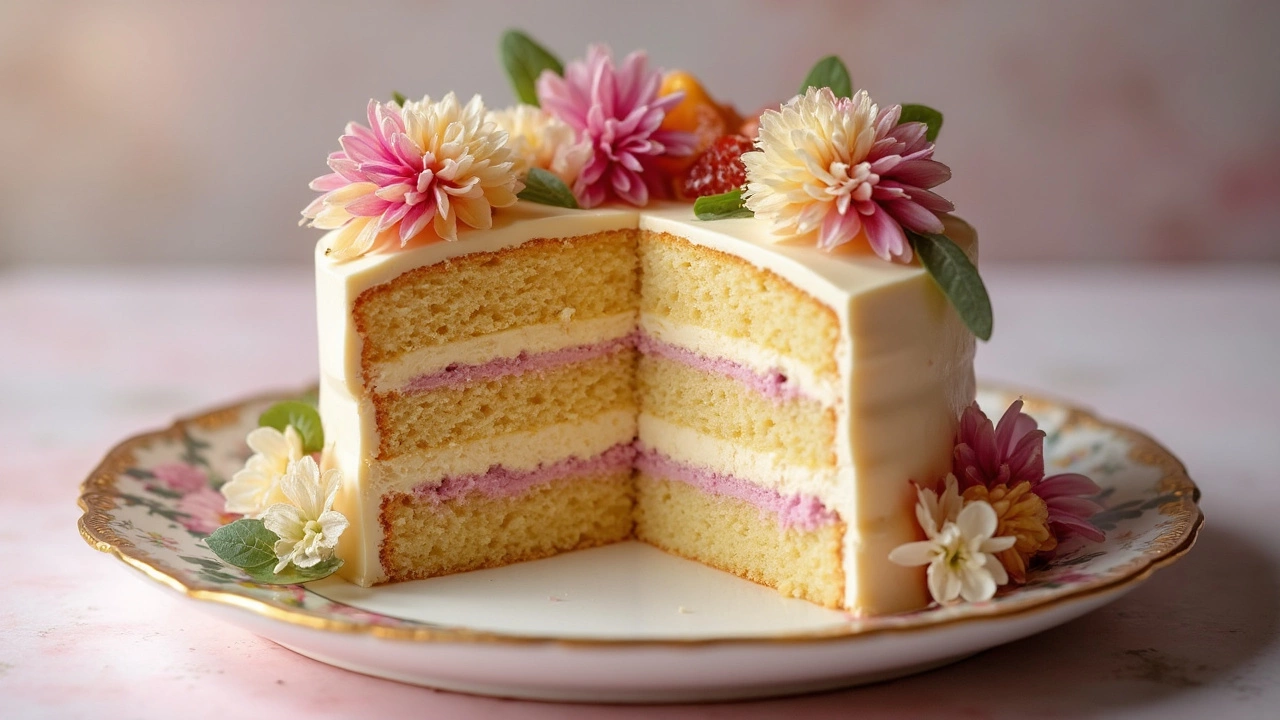
Gluten-Free Baking Tips with Potatoes
So, you want to bake gluten-free? First things first, potatoes can be your secret ingredient. They not only make your cakes moist but also add a touch of fluffiness that's sometimes hard to achieve with gluten-free recipes.
Why Potatoes Work in Baking
Besides being gluten-free, potatoes are amazing at holding moisture. Baking with them can prevent your cake from turning into a crumbly mess. Potatoes also have natural starches, which act as binders, giving your cake that coveted soft texture.
Using Mashed Potatoes
One of the easiest ways to bake with potatoes is to use mashed potatoes. Sounds weird? Trust me, it's not. Just boil, mash, and cool them before adding to your mix. Here's a basic step-by-step:
- Boil potatoes until soft.
- Mash them without adding any milk or butter.
- Let them cool to room temperature.
- Fold the mashed potatoes into your cake batter.
Potato Flour: A Gluten-Free Wonder
If you're all about keeping things simple, try swapping regular flour with potato flour. Potato flour is a great gluten-free alternative and can be used in a one-to-one ratio with other gluten-free flours for the best results.
Adding Flavor
Worried about your cake tasting too much like potatoes? You can easily counteract this by adding flavors like vanilla or cinnamon to enhance the overall taste without overshadowing your created masterpiece!
Watch the Baking Time
One thing to watch out for when baking with potatoes is the baking time. Since potatoes retain moisture, your cake might take a bit longer than usual. Check for doneness by sticking a toothpick in; it should come out mostly clean.
A Handy Tip
Here's a pro tip: try adding some instant potato flakes into your batter to give it an extra bit of texture. Just a small amount will do wonders.
Give these ideas a shot, and your next gluten-free cake, packed with potatoes, might just be your best one yet!
Creative Ways to Use Potatoes in Cakes
Who would have thought you could sneak some potatoes into your cakes? Well, it's not just possible—it's delicious and smart! Potatoes can be that secret ingredient you didn't know your cakery needed.
Potato Flour: The Unsung Hero
Before diving into recipes, let's talk about potato flour. It's a gluten-free flour alternative that adds moisture and a fine texture to your cakes. Unlike some other flours, it doesn't have a strong taste, so it blends seamlessly with your other ingredients.
As chef Emma Cartwright puts it,
'Potato flour is a fantastic option not just for feeding those hungry for gluten-free but for boosting the fluffiness factor in cakes.'
Mashed Potatoes: A Moist Cake Secret
Here’s a fun trick: use leftover mashed potatoes in your cake batter. The creaminess of mashed potatoes adds an unexpected moisture to the cake, making it soft and indulgent without weighing it down.
Potato-Starch Cakes: Light and Airy
Potato starch can be used as a substitute for cornstarch, making it a go-to for thickening your cake batters. It gives cakes a lighter, smoother texture. Perfect for airy sponges or angel food cakes!
Boiled Potatoes: Rich Chocolate Overload
Yes, you read that right! Boiled and mashed potatoes make for an excellent base for rich chocolate cakes. They create a dense, brownie-like texture. Simply peel, boil, and mash your potatoes, then mix them with your chocolate cake ingredients.
Here’s a quick guide to using potatoes in a gluten-free chocolate cake recipe:
- Boil 2 medium potatoes until tender.
- Mash them without adding butter or milk.
- In a bowl, mix the potatoes into your cake batter.
- Bake as you normally would for a chocolate cake.
| Type of Potato | Used For |
|---|---|
| Potato Flour | Cake Batter |
| Mashed Potatoes | Moistness in Cakes |
| Potato Starch | Thickening Agent |
So next time you’re looking to make something gluten-free and spectacular, don’t forget the humble potato—it might just be the key to your best cake yet!
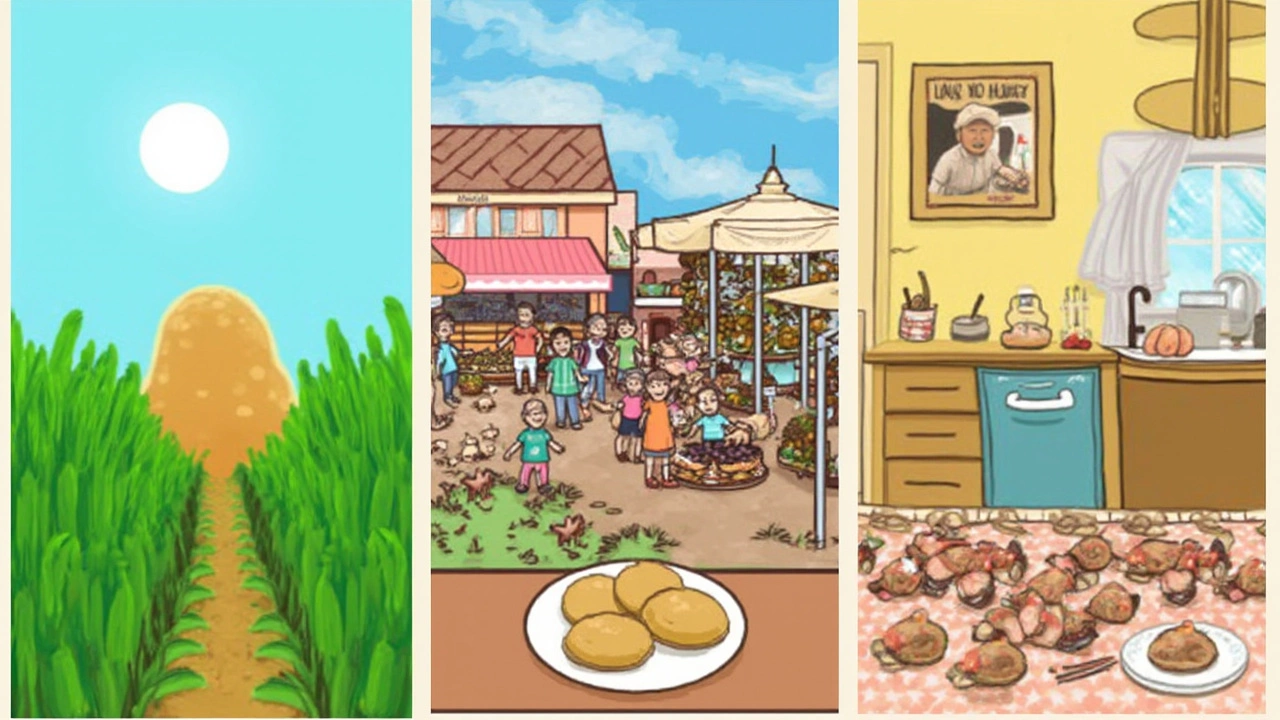
Common Mistakes to Avoid
Diving into gluten-free baking can feel a bit overwhelming at first, especially when you're trying to incorporate something like potatoes. But don't worry, here are some common missteps to avoid that’ll help you steer clear of any baking disasters.
Not Preparing Potatoes Properly
One of the biggest hang-ups is not prepping your potatoes right. Make sure they are properly cooked and mashed without any lumps. Lumps in the cake? No thanks. Also, don’t forget to let them cool down before mixing them into your batter. Hot potatoes can change the texture of your bake.
Overloading with Potatoes
Balance is key. If you go overboard with the amount of potatoes, you might end up with a soggy cake, and nobody's aiming for potato soup here. Usually, about a cup of mashed potatoes can do wonders without overpowering your other ingredients.
Ignoring Cross-Contamination
Speaking of gluten, it’s important to double-check your kitchen for potential cross-contamination. Mixing bowls, utensils, or even some ingredients might inadvertently have gluten lurking around. Make sure everything is squeaky clean before you start baking.
Skimping on Flavor
Let’s face it, plain potatoes aren’t exactly bursting with flavor. So, don’t be afraid to jazz up your cakes with flavors like vanilla, cinnamon, or nuts. Think of potatoes as the texture-enhancer, not your primary taste driver.
Avoiding these pitfalls will get you much closer to baking a gluten-free cake that tastes and feels just right!

